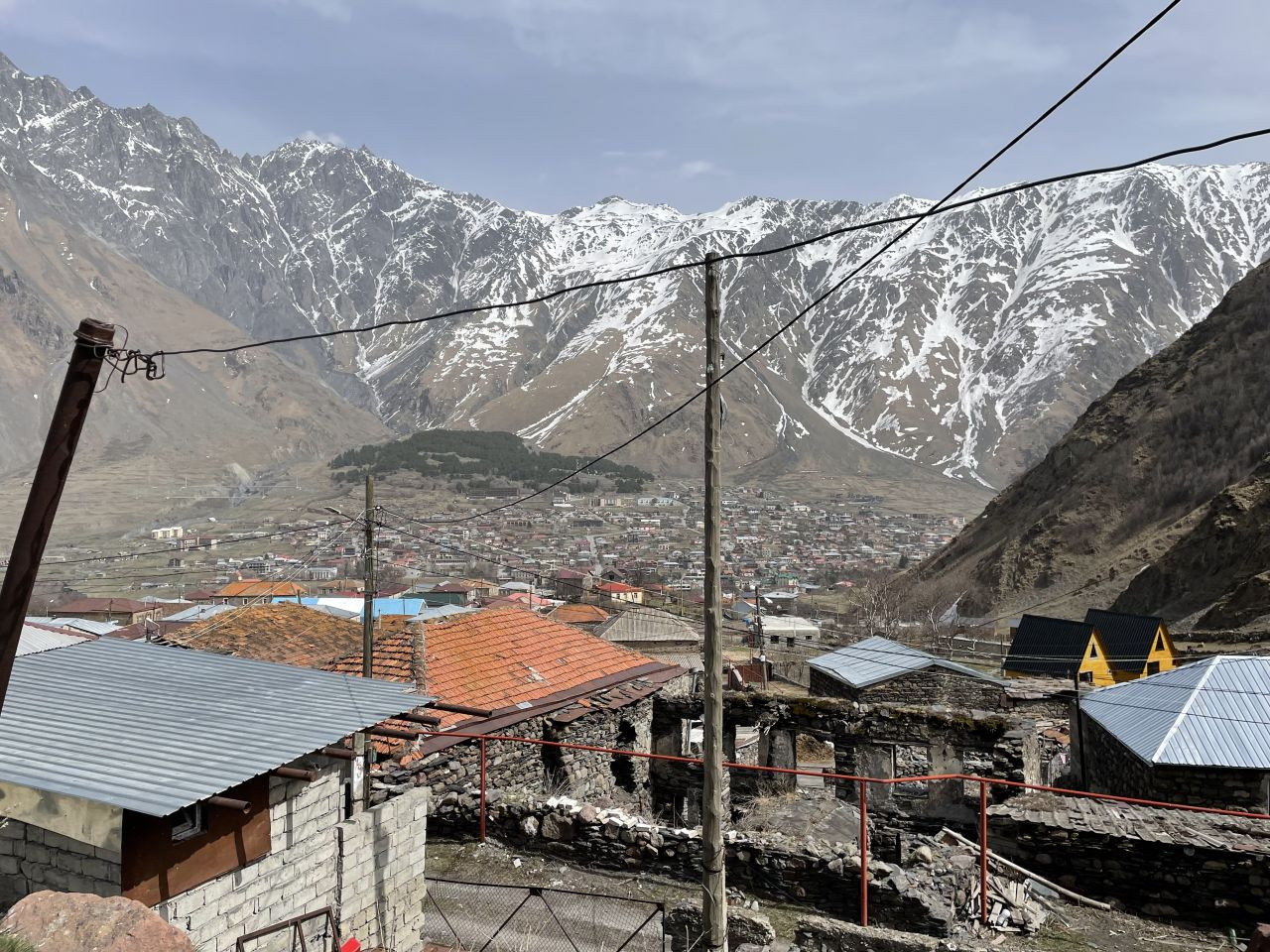Written by Luca Capitanio, Simone Giorzi & Natia Kekenadze, a collaboration between students of the Tbilisi State University and the University of Zurich
Today, the future of high mountain settlements is actively debated in scientific and public discussions. High mountain settlements are at risk for many reasons, one of the first is global environmental changes and disaster risk which affects people, their socio-economic status and the future of mountainous regions (Kohler et al., 2010). When we discuss the mentioned risks, we must take into account that their assessment and reduction significantly depend on the state and its policy will. The notion of community based mountain governance specifies collective action which is based on the actual specificity of a "mountain problem" (Rudaz, 2009). The purpose of the following paragraphs is therefore to briefly illustrate how the mountain communities in the Georgian state are organized in terms of their governance and expression.
Approximately two thirds of Georgia is mountainous. This regions are providing key ecosystem services, retain high biocultural diversity and are a key contributor to the economic growth and recreational activities (The World Bank Group and the Asian Development Bank, 2021). Multiple international organizations are working closely with the government of Georgia and with the high mountain communities. Their goal is to help address the environmental and socio-economic challenges, create community based governance policies and programs aiming at preserving and providing a sustainable future for these highlands (EU4GEORGIA, 2020). The Local Action Groups (LAGs) are activities based on the democratic principles of governance and on the public involvement/participation in decision-making. LAGs connect private, public and civil society sectors at the local level and identify mountain development priorities and community needs (EU4GEORGIA, 2020) LAGs are actively working in almost all municipalities of Georgia. However, we chose the Khulo Municipality Lag for our blog, since there was very little experience of community based governance and citizen participatory planning in general before the creation of LAGs in the Khulo mountainous municipality. Today, significant successes can be observed.
Khulo's LAG reunites residents and helps them to solve specific problems together. Working in collaboration with the municipality, they are involved in the institutional participatory mechanisms, in the civil advisory boards and in providing information, discussions and advocacy services for residents. One possible example is helping each other to find additional grants (EU4GEORGIA, 2020). Based on the official statistics, the LAG of Khulo has been involved in funding up to 73 local developing initiatives. Many examples are present, showing business projects with the capability of changing the socio and economic situation of the people living in the municipality. The LAG has until today also helped funding two sewing shop projects, where up to 15 women have been able to find an employment (EU4GEORGIA, 2020).
The creation of institutions that enable excellent communication between local mountain communities and the relevant political institutions is therefore of paramount importance to allow the best possible governance. Through LACs, the involved actors have the opportunity to share their opinions and organize useful activities and initiatives for the community. Following this, in cooperation with the municipality or through their own initiatives, the best measures can be taken to promptly address challenges and problems. In this way, the issues of greatest interest and importance to the people can be exposed and discussed in order to find the best solutions for creating the best possible outcome for the territory in the future.
Literature:
EU4GEORGIA Local Action Groups Empower Communities in Georgia . Retrieved 2020, October 4 from https://eu4georgia.eu/: https://eu4georgia.eu/local-actiongroups-empower-communities-in-georgia/
Kohler, Thomas & Giger, Markus & Hurni, Hans & Ott, Cordula & Wiesmann, Urs & Dach, Susanne & Maselli, Daniel. 2010. Mountains and Climate Change: A Global Concern. Mountain Research and Development. 30.
The World Bank Group and the Asian Development Bank. 2021. Climate Risk Country Profile: Georgia. Retrieved 2022, October 4 from https://www.adb.org/sites/default/files/publication/707481/climate-risk-country-profilegeorgia.pdf
Rudaz, Gilles. 2009. Territorial redefinition and the governance of mountain regions. Journal of Alpine Research. 97-2, p. 27-30.
Related Posts
Comments
By accepting you will be accessing a service provided by a third-party external to https://www.mountainapp.net/
This website uses no external trackers, no analytics, just session cookies and values your online privacy.



